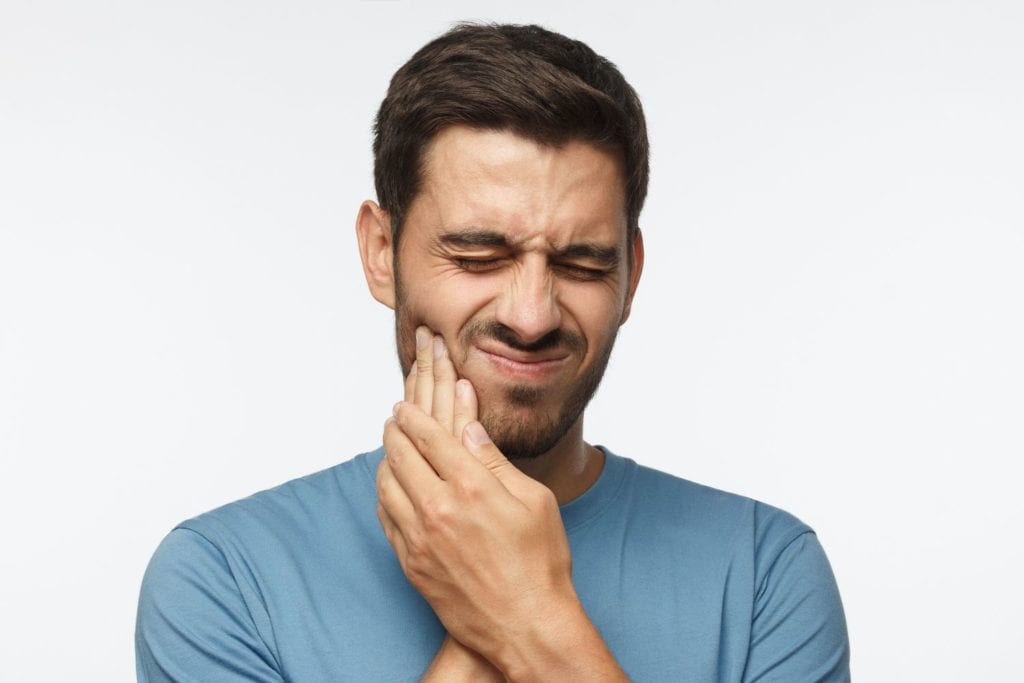Do you suffer from intense jaw pain?
Patients with a TMJ disorder, or an issue with the temporomandibular joint of their jaw, likely experience chronic jaw pain or soreness. When you have pain around the temporomandibular joints, you may also experience earaches, headaches, and a locked jaw. These are the common symptoms of a bite problem and can cause extensive damage to patients’ dental, mental, and physical health. TMJ treatment is one of the restorative dentistry options Dr. Paul C. Larsen provides to the public in Bountiful, UT.

A Dawson-trained dentist in Bountiful, UT, Dr. Larsen is able to provide advanced diagnosis and TMJ treatment to help patients relieve their jaw pain and restore a healthy bite. If you experience the common symptoms of TMJ or have concerns about your bite, please make sure to bring this up at your next dentist appointment so that Dr. Larsen can provide you with a range of treatment options to meet your needs.
Dr. Larsen uses the Dawson principles of Complete Dentistry to evaluate the condition and function of the jaw joints or your occlusion. It is important for the teeth to be able to make proper contact when biting to maintain a healthy and comfortable bite.
When the bite is not functioning properly due to crooked teeth, a jaw structure issue, or trauma to the joints it can lead to damaged teeth and uncomfortable symptoms affecting your quality of life. Proper and effective TMJ treatment should address not only symptoms but the root of the problem.

What is TMJ?
The temporomandibular joint (TMJ) is the hinge that connects the lower jaw to the skull. You have one on each side of your face, just in front of your ears. This essential joint helps open and close the mouth, chew food, talk, and move the jaw side to side. It works with muscles and ligaments to keep your jaw moving smoothly.
What is TMJ Disorder?
When the TMJ is healthy, you don’t even notice it. However, when there are problems with the TMJ, it can cause mild to severe problems. These joints can get injured or strained, leading to pain, clicking sounds, or issues opening and closing your mouth.
When this happens, you have a TMJ disorder. Common causes include teeth grinding, jaw injury, stress, and arthritis.
There are many symptoms you may exhibit if you have a TMJ disorder. These symptoms can affect the jaw, face, and even other areas of the body. Common symptoms include:
- Jaw pain or tenderness
- Clicking, popping, or grinding sounds when opening or closing the mouth
- Locking of the jaw or trouble opening/closing the mouth fully
- Pain in the face, neck, or shoulders
- Headaches or migraines
- Ear pain, ringing (tinnitus), or a feeling of fullness in the ears
- Difficulty chewing or discomfort when biting
- Swelling on the side of the face
- Jaw stiffness or muscle fatigue
- Changes in bite alignment (feeling like teeth don’t fit together properly)
TMJ Treatment in Bountiful, UT
Our TMJ treatment options include oral appliance therapy and restorative dentistry solutions to adjust your bite pattern and address any damage to the teeth or gums. Dr. Larsen takes a conservative approach to achieve a healthy bite and minimizes impact on the natural tooth structure.
Depending on the severity of your jaw misalignment, we may suggest orthodontics or oral surgery. Most jaw pain stems from an issue with your bite or tooth alignment. Additionally, if you grind your teeth, you are more likely to develop TMJ issues down the road, including damaged or worn teeth.
What is Oral Appliance Therapy for TMJ?
An oral appliance for TMJ is a custom-made device that helps reduce jaw pain and strain. This TMJ treatment option looks like a mouthguard, and you wear it on your teeth, usually at night.
A TMJ oral appliance, sometimes called a nightguard, works by keeping the jaw in a better position to ease pressure on the temporomandibular joint and surrounding muscles. A nightguard can also help stop teeth grinding, which can make TMJ pain worse.
By wearing an oral appliance, many people find relief from jaw pain, headaches, and clicking sounds. If you have TMJ issues, your dentist can create a custom appliance to help protect your jaw and improve comfort.
Frequently Asked Questions About TMJ Treatment
Here are some common questions we get regarding our TMJ treatments:
Will a night guard help my jaw pain?
Yes, oral appliance therapy through a night guard will help relieve the tension in your jaw while you sleep. Additionally, it will prevent you from clenching your teeth together as well. This will help relieve your jaw pain by encouraging you to maintain a healthy jaw resting position even while you are unconscious. If you notice that your jaw pain primarily occurs in the mornings, it is likely that oral appliance therapy would be a good TMJ treatment option for you.
Will I need braces to relieve my jaw pain?
Not necessarily. Sometimes, your jaw pain does stem from issues with your bite pattern. If this is the case, your doctor may recommend orthodontics to resolve this issue. However, other restorative dentistry options can help relieve your jaw pain. For example, if your jaw pain stems from missing several of your teeth, dental implants or dental bridges can assist in restoring your oral health.
What causes TMJ disorders?
There are a variety of causes for TMJ disorders. Commonly, we see former teeth-grinding patients develop TMJ disorders over time if left untreated. If you are missing teeth or have a misaligned bite pattern, you are also more likely to develop a TMJ disorder. Jaw pain stems from any additional strain that your mouth muscles are under. The goal of TMJ treatment is to relieve your mouth muscles from as much stress as possible to reduce the tenseness that is causing you pain.
How can I help relieve my TMJ at home?
After seeking TMJ treatment, you can also do several things at home to reduce your jaw pain. Eat soft foods, avoid biting your nails, and practice relaxation techniques under high stress. Be mindful of when you are clenching your jaw under high stress to avoid developing further jaw pain.
What is the best position to sleep with TMJ?
Sleeping on your back is the best position if you have TMJ. Sleeping in this position reduces the pressure on your jaw and neck, allowing your muscles to relax. Using a pillow to support your neck but not your head can also help keep your jaw open and unrestricted. If you’re a side sleeper, consider using a pillow between your shoulder and neck to maintain alignment. Everyone’s different, so finding what works best for you may take some trial and error.
Can you have TMJ on one side only?
Yes, it is possible to have TMJ symptoms on just one side of your face. While TMJ problems usually affect both sides, it’s not uncommon for pain or discomfort to be exclusively on one side. This could be due to dental misalignment or teeth grinding predominantly on one side.
What will happen if I ignore my TMJ pain?
Ignoring TMJ pain can make the problem worse over time. The pain may spread to your head, neck, and shoulders, making daily tasks harder. You might have trouble chewing, speaking, or even opening your mouth fully. Teeth grinding could lead to worn or broken teeth. Without treatment, the joint may become more damaged, leading to long-term issues. Seeing a dentist early can help prevent serious problems and relieve pain.
Schedule a Consultation for TMJ Treatment in Bountiful, UT
Dr. Larsen can provide you with complete TMJ treatment in Bountiful, UT. We will create a treatment plan to help you find relief from your jaw pain and other symptoms. To learn more about how we treat TMJ, schedule an appointment with Dr. Larsen today.
